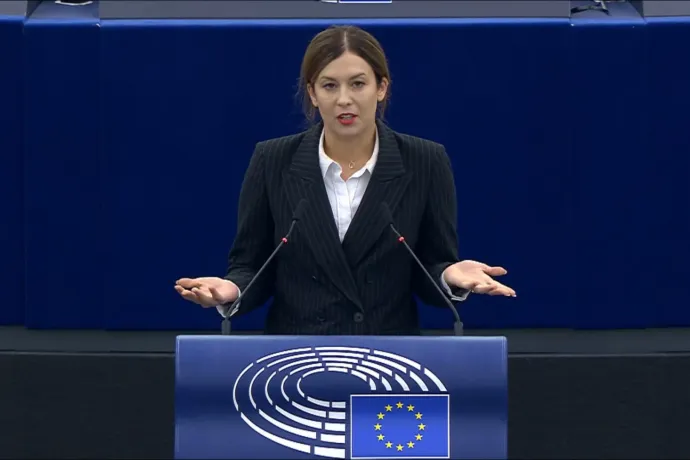Fidesz says no to EU Media Freedom Act – again

The European Parliament has adopted its position on an EU regulation aiming to safeguard media freedom. This moves the proposal one step closer to becoming law.
Putting a cap on public funds spent on advertising
According to a statement from the European Parliament, MEPs intention with the draft is to oblige member states to safeguard media pluralism. EU countries should protect the independence of the press from governmental, political, economic or private interference. MEPs would also ban any form of interference from media service providers in editorial decisions.
They also want to prevent external pressure on journalists, such as forcing them to reveal their sources, accessing encrypted content on their devices or targeting them with spyware. In 2021, an international project involving Telex partner Direkt36, revealed that a spyware programme called Pegasus was used in several EU member states, including Hungary, to monitor or attempt to monitor journalists (You may find all of our articles and Direkt36's coverage here.)
The negotiating mandate agreed upon would make the ownership of media companies more transparent, protect media against arbitrary decisions by large online platforms, and introduce a ceiling on publicly funded advertising to prevent the press becoming dependent on state advertising. In member states, a media service provider, online platform or search engine would not be allowed to receive more funds from public advertising than 15 percent of the total budget allocated to advertising by the local authority. The proposal would also disclose the criteria for the allocation of public funds used for advertising and set up an EU media watchdog.
Cseh: The proposal is a step in the right direction
During the debate on the proposal, Hungarian opposition MEP Katalin Cseh used KESMA, (Central European Press and Media Foundation) a group of nearly 400 publications, as an example, saying that three quarters of its advertising revenue comes from public funds.
"We have waited too long for the European Union to do something about this blatant attack on media freedom,
and the proposal is a step in the right direction. The 15 percent public advertising spending cap could help make public life healthier," she said.
Bocskor: Manually controlled by Soros through the Brussels bureaucracy
Fidesz had also opposed the draft during the vote of the parliamentary committee that prepared the current text, and this did not change for the plenary session. According to MEPWatch, MEPs from the bigger Hungarian governing party were among the 102 who voted against the proposal, compared with the 448 in favour. KDNP's György Hölvényi abstained, along with 74 other MEPs. One each from Fidesz, DK and Momentum didn't vote, while the others voted in favour.
Fidesz-delegated MEP Andrea Bocskor earlier posted on Facebook saying that
“The Hungarian public must be protected against another attack by Soros! The proposal of the EU Media Freedom Act is yet another serious attempt to interfere in the sovereignty of member states.”
In her opinion, while "Hungary is committed to properly addressing the issues raised, the regulation of the same is the right and responsibility of member states. However, the real purpose of the current draft EU legislation is clear: the Soros network wants to control the European public through the Brussels bureaucracy". She said that the draft, which was adopted in the first round, "aimed to ensure that only the voice of Brussels is heard in the public sphere in member states: pro-war and pro-migrant news, gender propaganda, and no other voice or opinion would be allowed to appear".
An agreement with member states must also be reached
With today's vote, the European Parliament has adopted its own position, providing the basis for negotiating the final form of the legislation with the Council, which has already adopted its own mandate. Once the two bodies agree on a joint text, adopting the proposal is usually a formality.
The Council needs a qualified majority to decide, meaning that it's not possible for one or two governments to veto. A minimum of 55% of member states, representing at least 65% of the EU's population, must vote in favour of the proposal.
For more quick, accurate and impartial news from and about Hungary, subscribe to the Telex English newsletter!